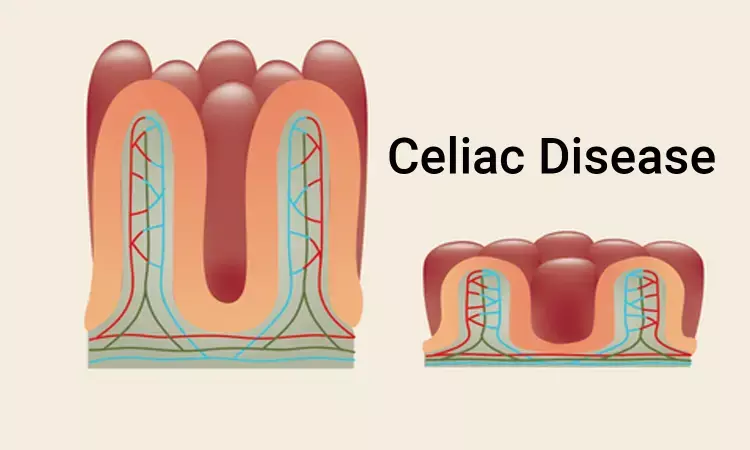- Home
- Medical news & Guidelines
- Anesthesiology
- Cardiology and CTVS
- Critical Care
- Dentistry
- Dermatology
- Diabetes and Endocrinology
- ENT
- Gastroenterology
- Medicine
- Nephrology
- Neurology
- Obstretics-Gynaecology
- Oncology
- Ophthalmology
- Orthopaedics
- Pediatrics-Neonatology
- Psychiatry
- Pulmonology
- Radiology
- Surgery
- Urology
- Laboratory Medicine
- Diet
- Nursing
- Paramedical
- Physiotherapy
- Health news
- Fact Check
- Bone Health Fact Check
- Brain Health Fact Check
- Cancer Related Fact Check
- Child Care Fact Check
- Dental and oral health fact check
- Diabetes and metabolic health fact check
- Diet and Nutrition Fact Check
- Eye and ENT Care Fact Check
- Fitness fact check
- Gut health fact check
- Heart health fact check
- Kidney health fact check
- Medical education fact check
- Men's health fact check
- Respiratory fact check
- Skin and hair care fact check
- Vaccine and Immunization fact check
- Women's health fact check
- AYUSH
- State News
- Andaman and Nicobar Islands
- Andhra Pradesh
- Arunachal Pradesh
- Assam
- Bihar
- Chandigarh
- Chattisgarh
- Dadra and Nagar Haveli
- Daman and Diu
- Delhi
- Goa
- Gujarat
- Haryana
- Himachal Pradesh
- Jammu & Kashmir
- Jharkhand
- Karnataka
- Kerala
- Ladakh
- Lakshadweep
- Madhya Pradesh
- Maharashtra
- Manipur
- Meghalaya
- Mizoram
- Nagaland
- Odisha
- Puducherry
- Punjab
- Rajasthan
- Sikkim
- Tamil Nadu
- Telangana
- Tripura
- Uttar Pradesh
- Uttrakhand
- West Bengal
- Medical Education
- Industry
Higher probiotic Bifidobacteria levels may help celiac disease patients

Celiac disease (CD) is a chronic illness characterized by an inflammatory process triggered by gluten protein intake. Recent evidence has suggested that the lower relative abundance of bifidobacteria in the intestinal lumen may be associated with Celiac disease.
Researchers have been exploring how gut bacteria, especially Bifidobacteria, could be used as a treatment. Now, scientists publishing the results of laboratory experiments in ACS' Journal of Agricultural and Food Chemistry report how specific types of Bifidobacteria work.
Humans have many types of bacteria living in their digestive systems, but those with celiac disease have altered levels of "beneficial" and "harmful" gut bacteria.
And even if they stick to a strict gluten-free diet, celiac disease patients typically cannot reestablish an ideal gut microbiome on their own. In particular, the levels of bacteria in the Bifidobacteria family are lower in those with the condition than in healthy individuals.
These bacteria can chop up gluten proteins into smaller fragments that are not as triggering or damaging in patients, which has led researchers to try using the microbes as a probiotic to treat gastrointestinal diseases. So Edson Rodrigues-Filho, Natália E. C. de Almeida and colleagues set out to see exactly how various Bifidobacteria strains break down gluten peptides and what effect these smaller gluten-derived peptides would have on the immune response.
The researchers extracted gluten proteins from wheat flour and cultivated four strains of the Bifidobacteria family, both separately and in one large group. In an artificial intestinal environment, B. longum chopped up gluten proteins into the most fragments, compared to the other strains and the mixture of all four strains. From there, the team analyzed the cytotoxic and inflammatory responses to the various peptides, and found that those from the B. longum strain caused the least harm to intestinal cells in petri dishes.
These results mark the first identification of specific gluten-derived peptides generated directly from intact gluten proteins by Bifidobacteria activity and the immunological responses to them by human cells, paving the way for new treatments and better patient outcomes, say the researchers.
for further references log on to:
Agric. Food Chem. 2020, 68, 15, 4485-4492
https://doi.org/10.1021/acs.jafc.0c01421
Dr Kamal Kant Kohli-MBBS, DTCD- a chest specialist with more than 30 years of practice and a flair for writing clinical articles, Dr Kamal Kant Kohli joined Medical Dialogues as a Chief Editor of Medical News. Besides writing articles, as an editor, he proofreads and verifies all the medical content published on Medical Dialogues including those coming from journals, studies,medical conferences,guidelines etc. Email: drkohli@medicaldialogues.in. Contact no. 011-43720751


